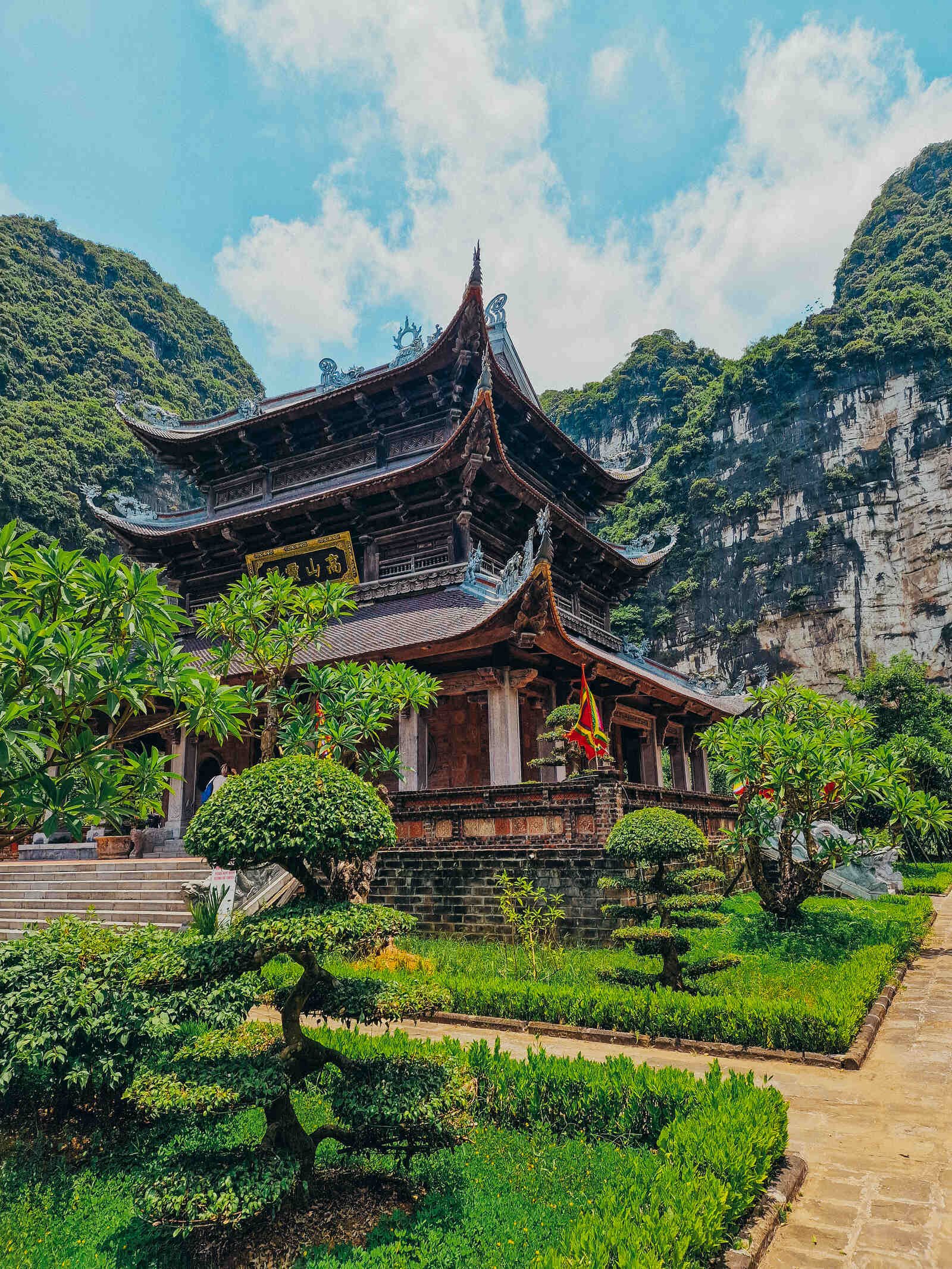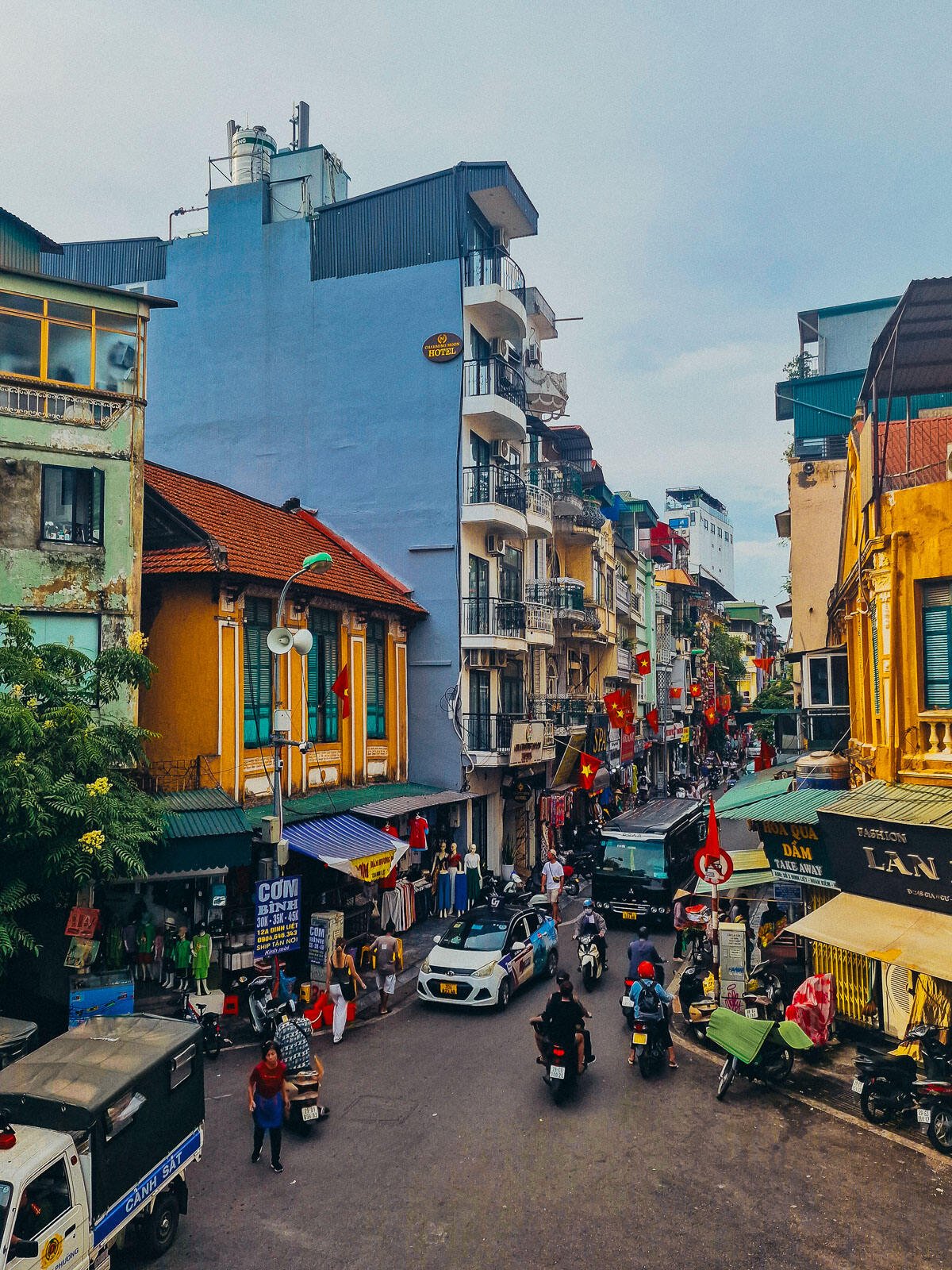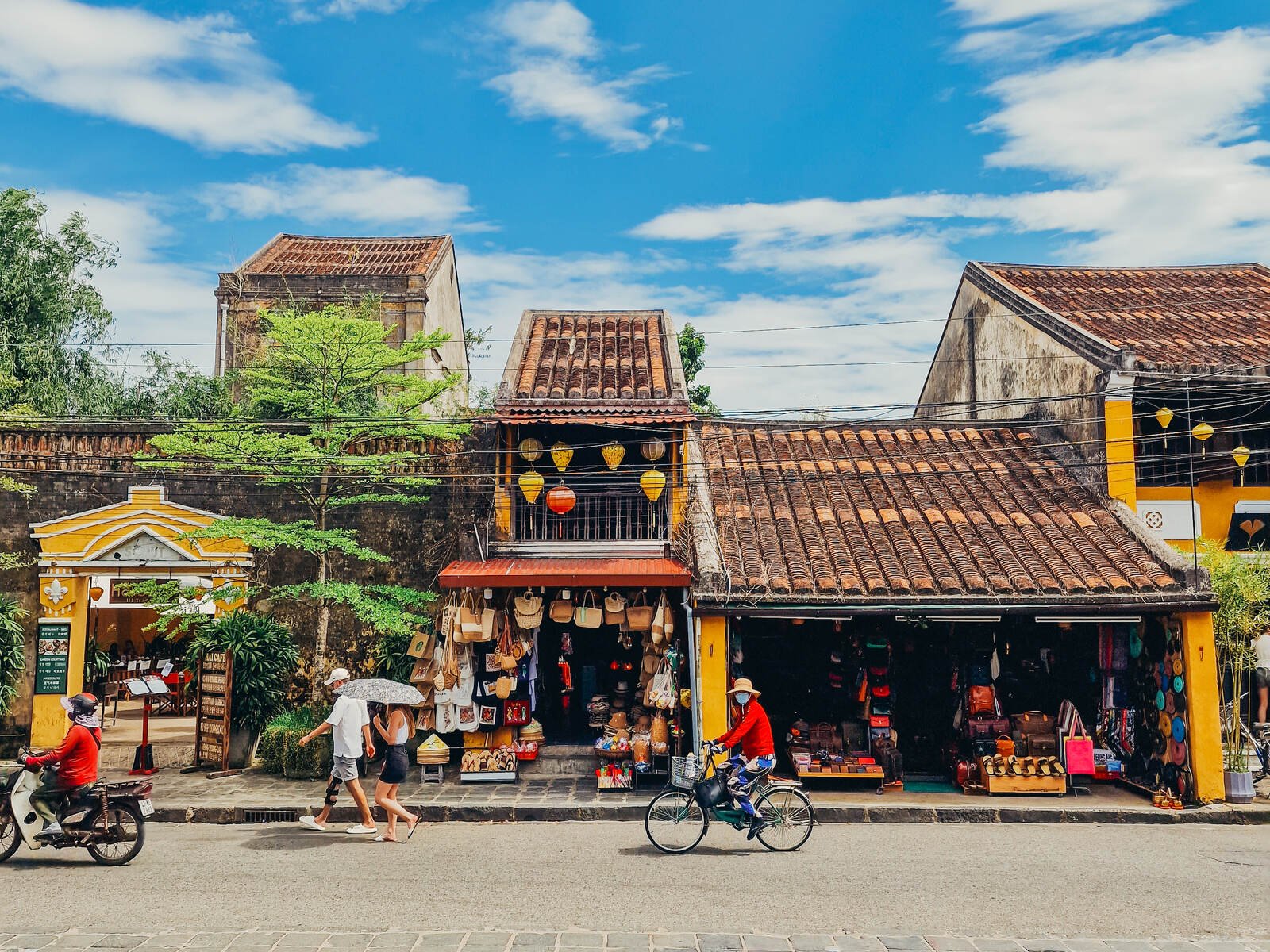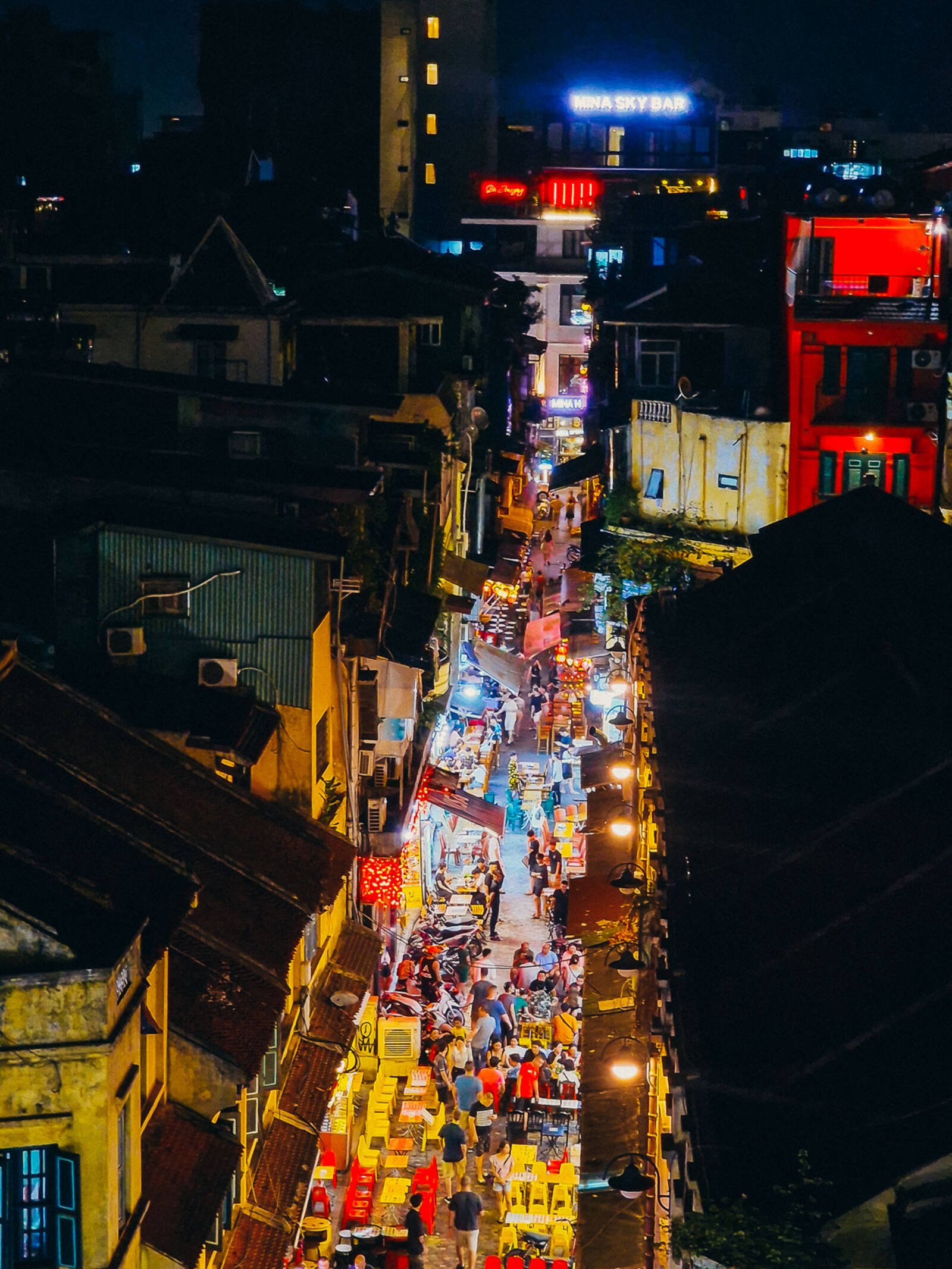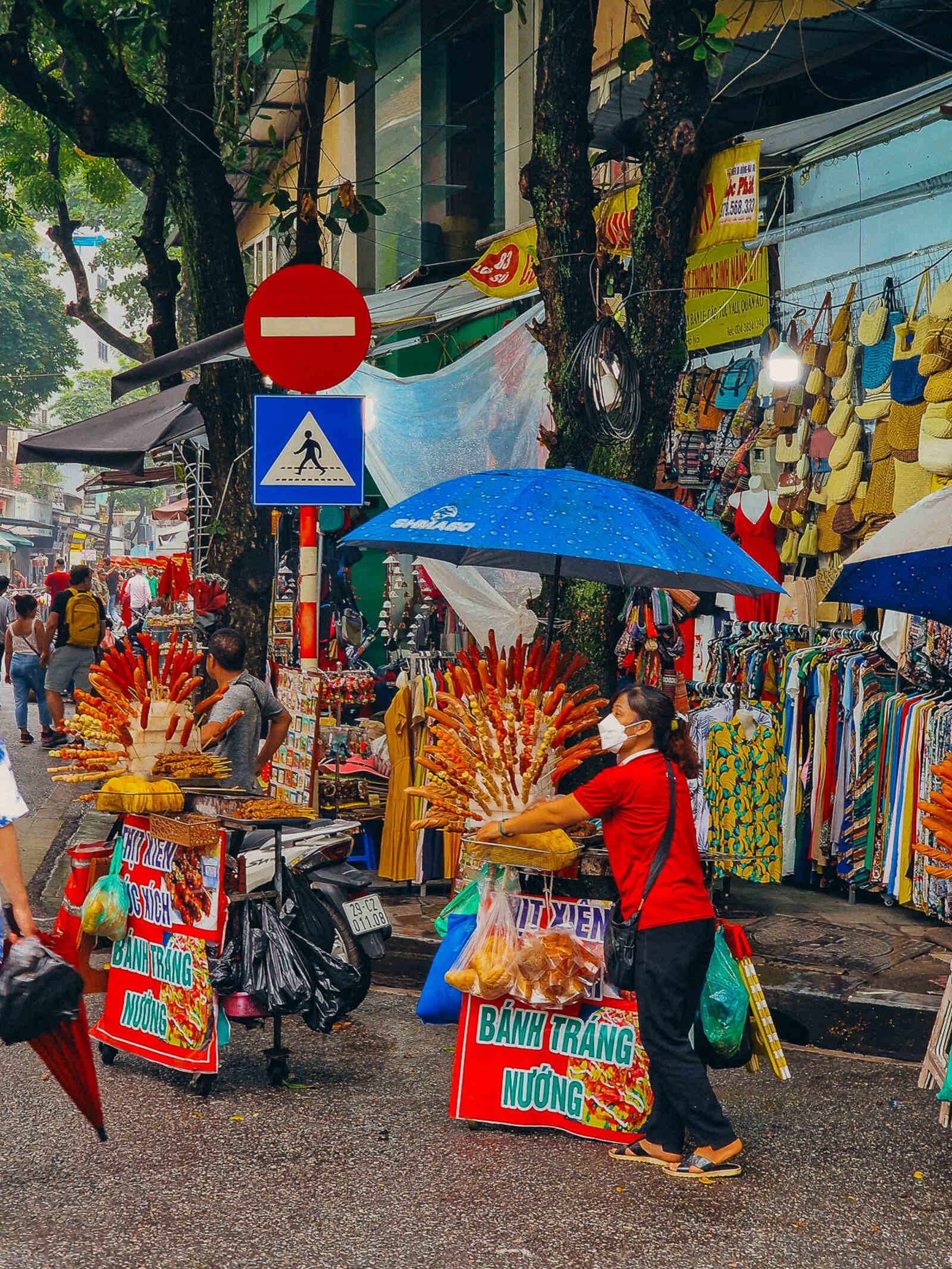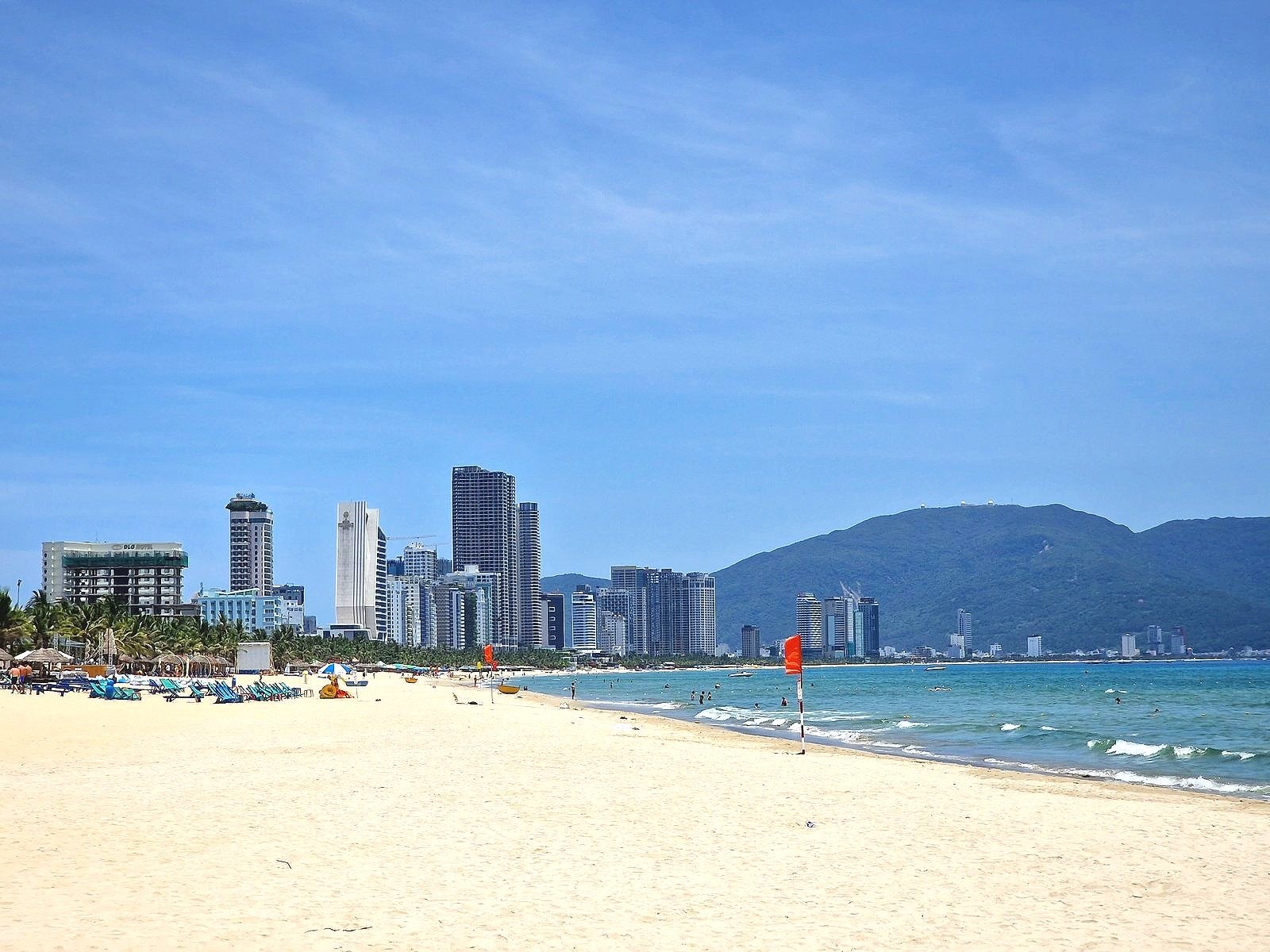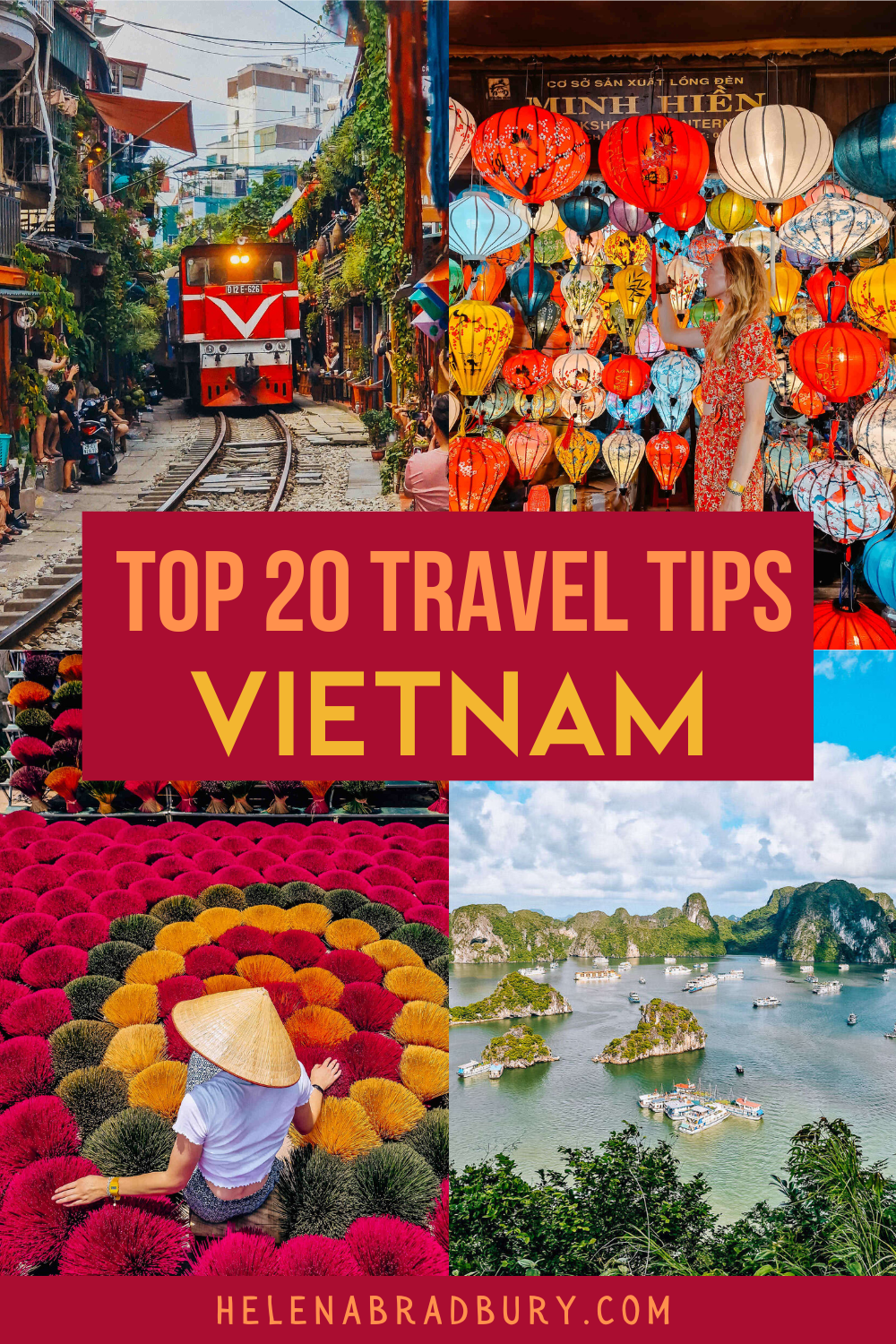After spending several months hopping all over Vietnam, including one month based in Hanoi and three more in Da Nang, I’m often asked for Vietnam travel tips, especially for first time visitors to Vietnam.
Vietnam can be a shock, especially if you’ve never travelled in Southeast Asia before. It’s chaotic, busy, road rules are so different and the language and cultural barriers can feel overwhelming at first.
But ultimately, Vietnam is a very safe and welcoming country that is focusing more and more on tourism - so as long as you’re prepared with your Vietnam itinerary and a few travel tips to get you started, you’ll be perfectly prepared for your epic adventure.
So I’m sharing my top 20 travel tips for Vietnam after 3 months here (and counting!)
Trang An temples
Essential travel tips for Vietnam
1. You’ll need to learn to walk in traffic
The further north you are in Vietnam, the more you need this tip. Road rules are a non-concept in Vietnam except for one - everyone follows their own rules.
There is a real “me first” mentality when it comes to drivers in Vietnam and the sheer volume of traffic on the roads, especially scooters, means the cities are just chaotic. Particularly in Hanoi where there are no pavements in the city but millions of scooters weaving in and out of alleyways, between parked cars, vehicles parked randomly in the road or drivers driving the wrong way up roads.
Red lights are not obeyed and pedestrian crossings might as well not exist - so you need to learn to step out into the traffic.
Drivers expect to come across pedestrians and are very good at avoiding them. However, don’t expect a break in the traffic, you will need to learn to just step out and let the traffic flow around you. A local told us it’s like water flowing around rocks in a stream - they will just keep driving and you need to keep moving forward - you’ll get used to it soon, I promise!
Busy street in Hanoi Old Town
2. Keep moving forward when crossing the road
Point 1 leads me to point 2 - you are most likely to be hit by a scooter if you panic and step backwards when you’ve already started crossing the road.
Drivers are prepared to weave around pedestrians and they decide which way to weave based on the direction you’re moving in, so if you suddenly step backwards - you’re more likely to cause a collision.
Just keep moving forward - slow and steady!
2. Someone flashing their headlights or using the car horn isn’t them letting you go, it means they’re going
This one took me a while to figure out because in the UK, if you’re crossing the road or even in a vehicle, someone flashing their lights at you means “go ahead, I’m giving way to you”.
In Vietnam it means the opposite, it’s more like a warning - “I’m coming through.”
So if someone flashes, don’t step out.
In the same way, using car horns is an aggression thing in the UK but in Vietnam it’s just used as an alert to let someone know the vehicle is there or coming through.
3. Use Grab to get around
Grab is the Southeast Asian equivalent of Uber and it is incredibly cheap!
We usually get a Grab for around 35,000 VND (£1) for a 10 minute ride - an amazing deal!
4. Don’t worry too much about booking stuff in advance, everything is bookable when you’re there!
Ha Long Bay
Before my trip I was so worried about booking tours and trips or bus travel in Vietnam but aside from tour companies like GetYourGuide, I couldn’t find a way to book tickets to cover transfers or long distances in advance.
I needn’t have worried. A lot of Vietnamese businesses are small businesses who don’t have a website and definitely not an international website. So much of business is done in Vietnam by word-of-mouth or referrals.
We were able to make all of our bookings through our hotels or accommodation, or if they couldn’t help us with a booking, they knew someone who could.
Everyone knows someone who knows someone and that really comes in handy once you’re in the country.
Plus you’re more likely to get a better price by booking locally (and in cash) in Vietnam rather than online before you arrive.
5. Never accept the first price at a market
Hoi An Ancient Town
Vietnam is a country where haggling is acceptable.
It’s also a country where visiting tourists don’t realise how cheap products are and as such, are often sold items at much inflated prices, especially in popular tourist hotspots like Hoi An or Hanoi old town.
I suggest having a figure in mind that you’d like to pay before going to buy and have the cash ready - nothing more.
Usually sellers will name a number that’s much higher than the actual selling price. Of course it’s most likely still an affordable price for you, so it’s ultimately up to you whether you choose to haggle.
But generally you can haggle it down by about a quarter to a third. I often find that starting to walk away usually leads to the cheapest price being offered.
6. Don’t flush your toilet paper
There’s signs everywhere reminding you, but seriously the sewage and plumbing systems can’t handle it and you DO NOT want to be responsible for flooding/backing up an entire hotel or restaurant.
I know it takes some adjusting to put toilet paper in the bin, but it’s only uncomfortable for you. This is normal and necessary in Vietnam.
If you’re staying in a hotel, bins will be taken out daily.
7. Don’t drink the tap water
Another one that can be hard to adjust to depending on where you come from.
Drinking tap water is not only bad in Vietnam because of the bacteria, but the water also has high levels of heavy metal poisoning, 15x higher than the recommended according to the WHO.
Stick to bottled water if you want to enjoy your trip without stomach upsets.
I was so resistant to this as I hate using plastic bottles and single use plastics, I even looked into the steriliser pens and tablets for water but these are mostly effective against bacteria and not the heavy metals.
Ultimately, it’s wise to play it safe and stick to bottled water - the locals do it too. If they do then that means you definitely should!
8. Ask for drinks without ice
Beer Street in Hanoi, Vietnam
Leading on from the point above, don’t take the risk of iced drinks.
While some places will make their ice with bottled water, not all do. So you run the risk of getting something from the frozen water in your iced drink.
9. The most cost effective way to buy water if you’re staying for a while
If you’re staying in Vietnam for a while, it’s worth getting a water dispenser from the convenience store.
These look like the standard water barrels you get in the top of a water cooler at the office, but you put them on your worktop and the tap means you can refill your own water bottle each day - less plastic bottles used!
To buy these water barrels at the store, you put a deposit for the barrel then buy the water, bring the barrel back empty and swap it for a fresh one and just pay the water fee each time. Or if you’re done with the barrel, return it empty and get your deposit back.
10. Bring cover ups for temples - especially women
Being respectful in other countries and cultures is vital and never more so in places of religious significance.
What is a tourist attraction to you is a belief system and a way of life for others.
Most temples require shoulders to be covered on men and women while women will also need to cover legs too. Some stricter places may require men to wear long trousers too.
It’s good practice to keep a pair of lightweight pants, a long skirt or foldable sarong in your bag for these occasions.
11. Always carry cash
Vietnam is still very much a cash society. While you can pay by card in most supermarkets, major convenience stores, hotels and some city restaurants, you’ll find that smaller, local, independent or rural businesses still only accept cash.
Although Vietnam’s currency is large denominations, they don’t use coins, so it’s easy to carry around notes in wallets or your pocket.
Hanoi street food
12. Book your accommodation with the nightlife in mind
This may genuinely not be an issue for some people, especially if you’re a heavy sleeper.
Vietnam doesn’t really have noise restrictions or business closing hours and we’ve learnt the hard way that booking accommodation next to a club, bar, night market or party street is a recipe for an awful night's sleep.
On one occasion we booked an apartment for a month on a quiet residential street and discovered on our second night that there was a techno bar across the road - I can only imagine how awful it was for the elderly people living next door!
13. Join expat or local Facebook groups and WhatsApp groups to ask questions
I highly recommend joining expat groups on Facebook or Whatsapp to ask questions and get the most up to date info about your destination, especially if you’re planning to stay for a while.
For Hanoi
Hanoi Expats
Hanoi Events
For Hoi An and Da Nang:
Expats in Da Nang Hoi An on Facebook
Digital Nomads in Da Nang on Facebook
For Ho Chi Minh City:
Expats in Ho Chi Minh City (Saigon)
Expat Community in Ho Chi Minh City
There are groups for most major destinations - I recommend having a search before you go if you have any questions about the best areas to stay or recommendations for niche activities like where to rent a bike or good surf spots.
14. Don’t forget bug spray or mosquito repellent
As someone who suffers badly from mosquito bites - it’s probably one of the worst I’ve ever experienced in Vietnam during the humid summer months.
In the winter when it’s colder it’s much less of an issue.
But if you’re visiting in the warmer and humid months, bring repellant and long clothing for the evenings.
15. Don’t assume trains are the best way to cover long distances, domestic flights are very cheap in Vietnam
I’ve heard great things about the scenery on trains in Vietnam, but I’ve heard bad things about how unhygienic and busy they can be.
Domestic flights in Vietnam are an easy and cheap way to get around if your Vietnam itinerary is taking you across further distances such as Hanoi to Ho Chi Minh City.
If you’re covering shorter distances such as Hanoi to Sapa or Hoi An to Hue, buses are most likely the best and most affordable and reliable option.
16. Lazada and Shopee are the equivalents of Amazon in Vietnam
Need something quick in Vietnam? I always try to buy something locally but if you’re like me and planning to spend a month or two in Vietnam, sometimes you can only get the exact thing you need from an Amazon-like platform.
Lazada and Shopee are your best options and you can get deliveries to your apartment rental or hotel.
17. You can get much more for less in Vietnam
This is much more of a reminder rather than a tip but if you’ve always wanted to stay in a luxury jungle resort or an overwater bungalow or a villa with an infinity pool, you can do all those things for a fraction of the cost compared to destinations like the Maldives, Seychelles, Greece or the Caribbean.
I suggest looking around on Booking .com but also using Agoda which is a much more popular booking platform in Asia with incredible accommodation deals.
18. Read the reviews EVERYWHERE!
My last tip leads me on to this one…
In our early days in Vietnam, when we booked accommodation online we started to realise some of the reviews were fake or clearly done by friends, some even followed the same script written by different people!
I highly recommend checking reviews on Booking .com, Agoda, Google and TripAdvisor (or all of the above) to compare reviews across different platforms.
Of course there are always negative reviews for everywhere but we often got a much more accurate idea of whether photos were a true representation of the accommodation and whether it really did look as nice and luxurious as the photos, by checking reviews in multiple places.
19. Consider an extra suitcase for your return trip
I caveat this by saying I have never been someone who buys so much that I need an additional bag on the way home.
However, I actually had to mail stuff home while we were in Vietnam because I had acquired too much!
With Hoi An being famous for its cheap tailoring, you might want to consider a bespoke suit or tailored dress. With very cheap decor, homeware, electronics and clothing, there are great deals and a lot are handmade here in Vietnam then sent to western countries and marked up in price.
Many factories are based in Vietnam and you can find well-made garments for a fraction of the price that the same would sell for at home.
Just a consideration for when you book your trip!
Hoi An lantern shops
20. Vietnam is very safe
Vietnam is probably one of the safest places I’ve ever been.
Obviously exercise caution like you would anywhere in the world, even in your own hometown.
But if you’re anxious about your first trip to Southeast Asia or perhaps you’re a worried parent, as a female in my 20s, I’m hyper-vigilant about myself and my surroundings, yet I’ve never once felt unsafe or threatened or uncomfortable in Vietnam.
I’ve found it to be a very chilled, respectful and welcoming society where people just tend to go about their day without bothering you or wanting to be bothered.
Summary: top tips for travelling to Vietnam
I hope my months spent in Vietnam have given you some helpful tips and things to consider for your trip.
It truly is a beautiful, chaotic, colourful and exciting place to visit with dynamic destinations, welcoming people and so much history and culture to explore on a budget.
Pin to save it for your trip!
